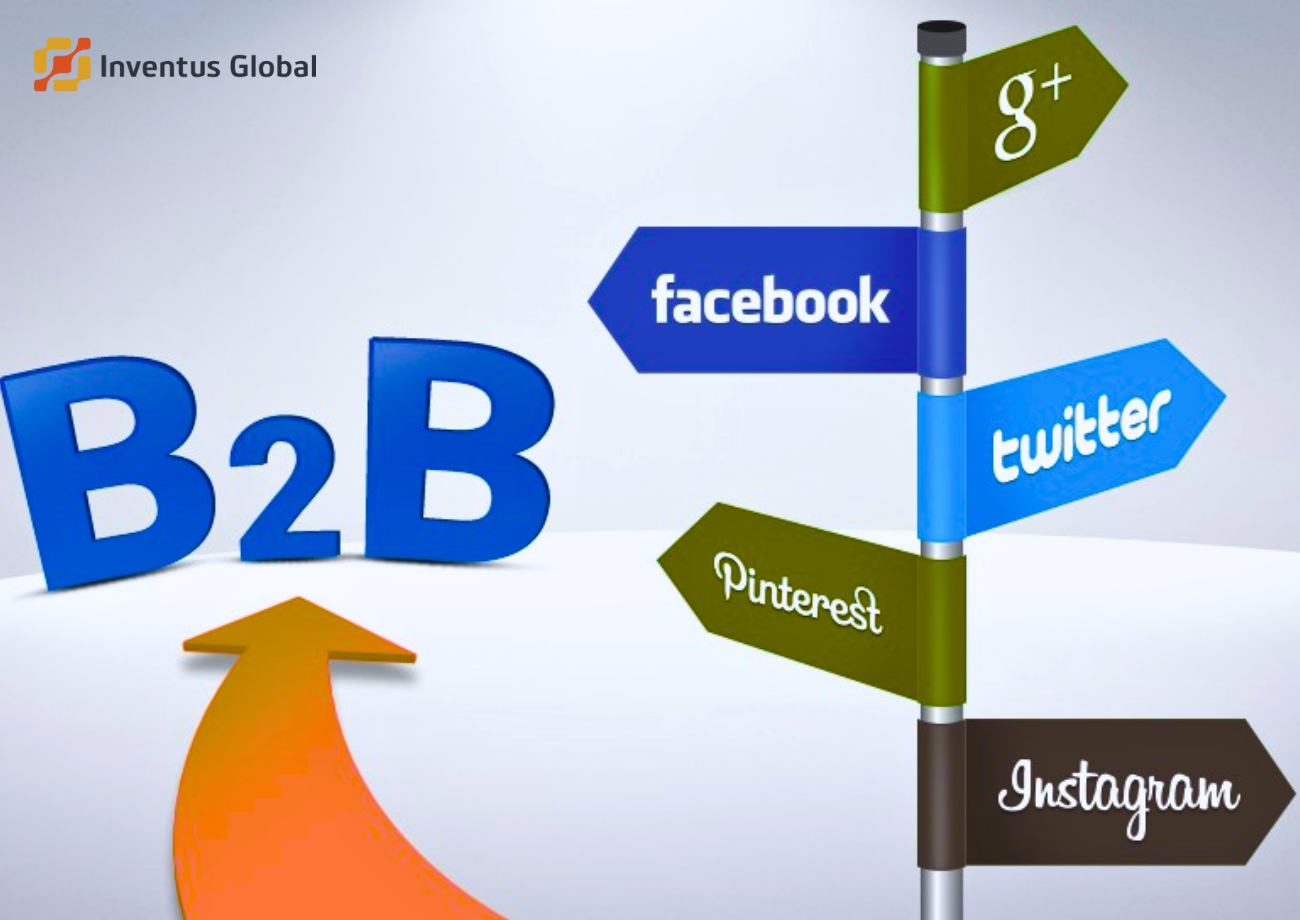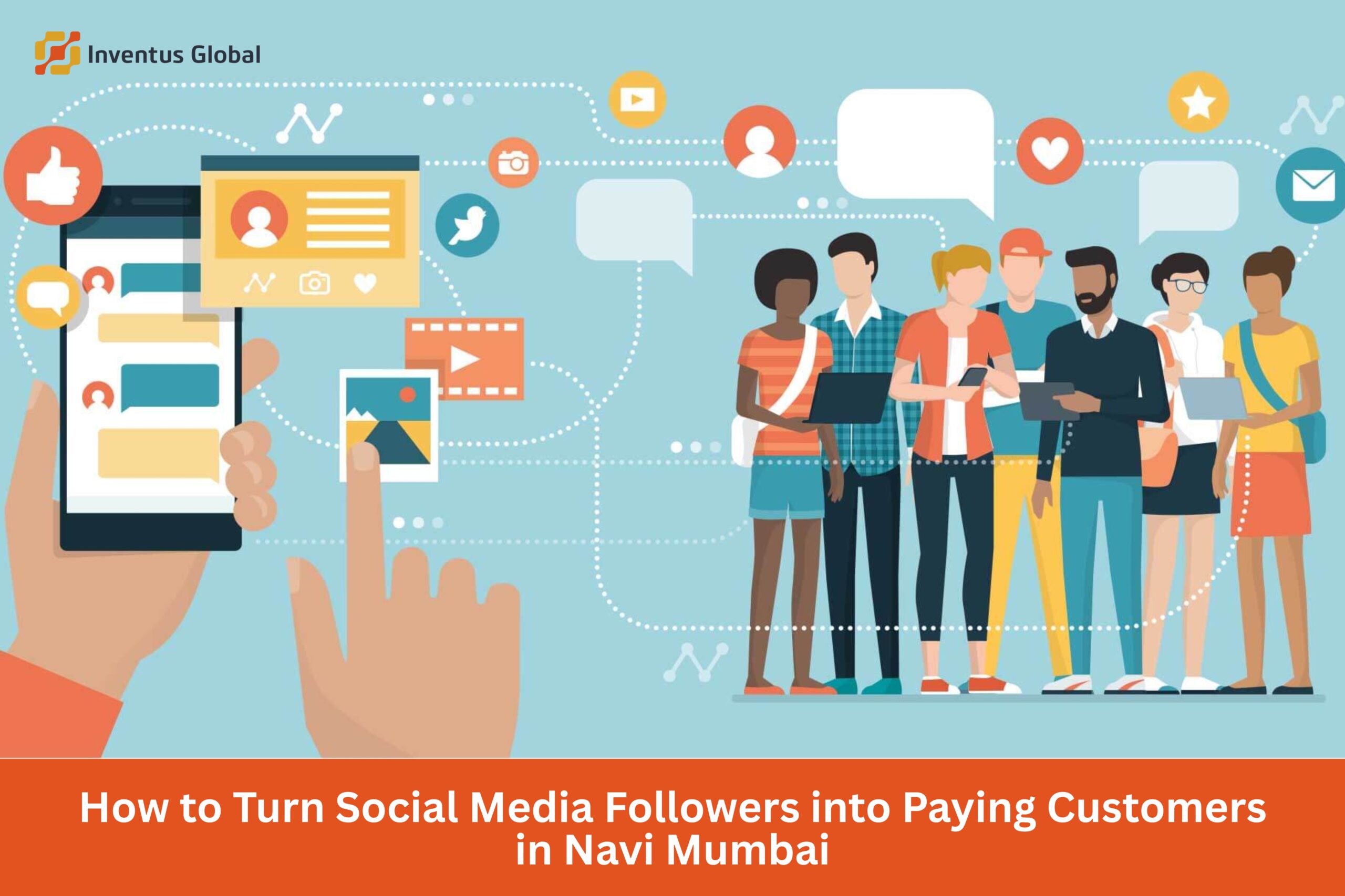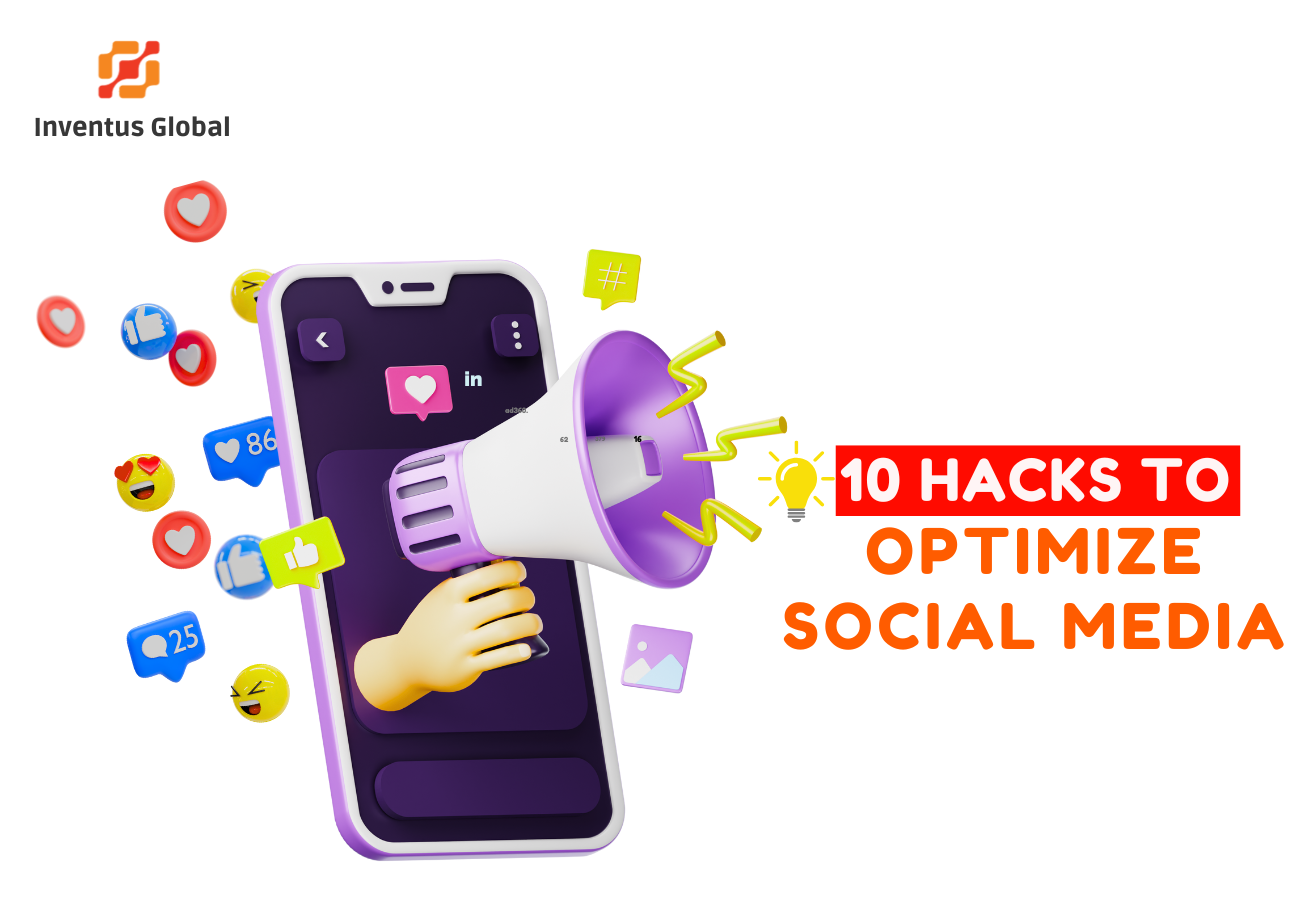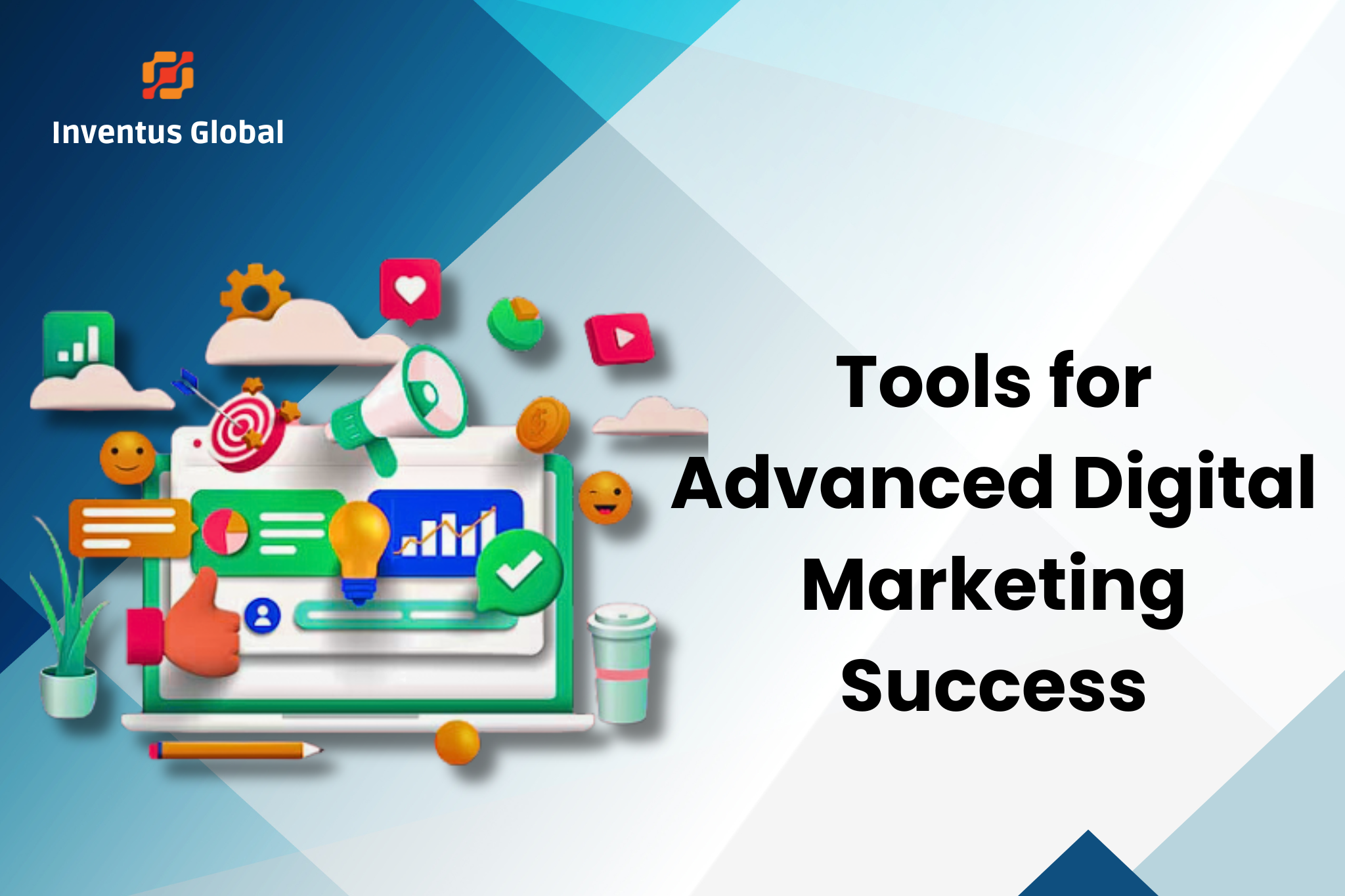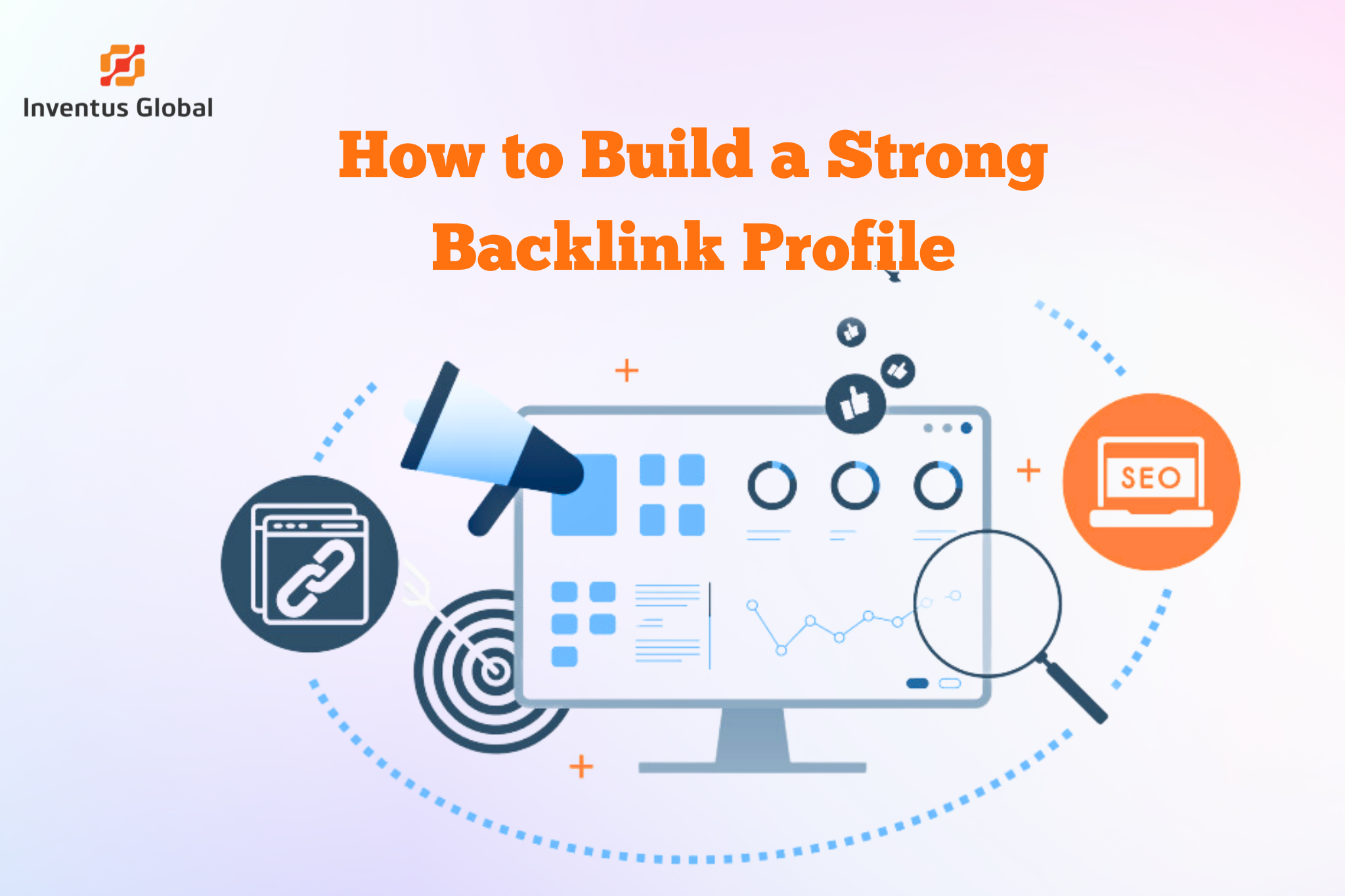Table of Contents
Moving forward while adapting to newer ways of doing things is vital for businesses.For B2B companies, it’s even more important because of the longer decision cycles. While traditional marketing tactics are still the most basic essentials for business growth ,a powerful growth tool has emerged : Social Media Marketing (SMM). At Inventus Global, we believe that this tool can help businesses grow like never before. Let’s understand how Social media marketing is critical for B2B growth.
What is Social media marketing for B2B?
In B2B, social media marketing refers to strategizing and planning the use of social media channels to reach more potential clients. It helps to build brand image, drive leads and accelerate business growth. More than merely posting and updating, it is initiating a meaningful conversation,building communities and long lasting relationships ultimately growing your business.
Why does B2B need social media marketing?
The rise of the digital marketing age has paved a superfast creative way for business growth. Here’s why social media has become indispensable for B2B growth in today’s age:
Helps you land up where your audience is: The professionals and businesses of your interest are actively present on various social media platforms.They also need information and industry updates. So as a B2B brand, being on the same floor in the digital world gives you better exposure to all these potential clients.
B2B success hinges on trust :Building trust and good will is key to business growth. Give valuable insights, build authentic conversations in order to win their trust.
Real time interactions and feedback: Social media offers a unique platform for direct interaction with potential clients and industry experts. This opens many important windows of opportunities. You can receive direct feedback that can help you address concerns thereby building stronger connections.
Gain an Edge: Competitors are on social media. A strong presence helps you stand out and capture market share.
Insights based on actual data : Social media platforms analyse the interactions and give crucial insights. It helps in understanding behaviour and habits of consumers. Consistently tracking campaign performance, and refining your strategies to get better results is a beneficial habit for brands.
B2B social media marketing strategies :
1. Know Your Goals & Audience:
What do you want? Define specific objectives like brand awareness, leads, traffic, or better customer relations to guide your strategy.
Who are they? Clearly identify your target industries and organizations, understand their online behavior, and engage where they are to build effective strategies.
2. Choose mindfully : the right social media platform for B2B marketing is important.
LinkedIn:The primary online hunt for business connections can start here. It’s great for showing you’re a leader in your field, meeting other professionals, finding potential customers, and sharing smart ideas about your industry.

Twitter (X): Good for quick updates, talking about what’s happening in your industry, sharing news, and connecting with important people and news outlets.
YouTube: This is a strong tool for showing product demos, webinars and telling success stories (case studies). Expert insights can be shared in different formats i.e., long videos and youtube shorts,etc.
Facebook: Impressive platform for brand awareness and to build communities.Run ads aimed at desired niche businesses.
Instagram: If your business has visual appeal, this is becoming a good place to show off your company culture, what your products look like, and give people a peek behind the scenes.
3. B2B social content marketing: a game changer
Focus on quality and value :Provide good quality original content that is insightful. If it addresses your audience’s needs and challenges in the best way, chances are the algorithm will also push it forward naturally.
Establish niche : There should be 3-5 core topics your content will revolve around to position your company as a niche expert.
Diverse Formats: experiment with a variety of formats such as articles, blog posts, infographics, videos, case studies, webinars, podcasts, and interactive content like polls and quizzes.
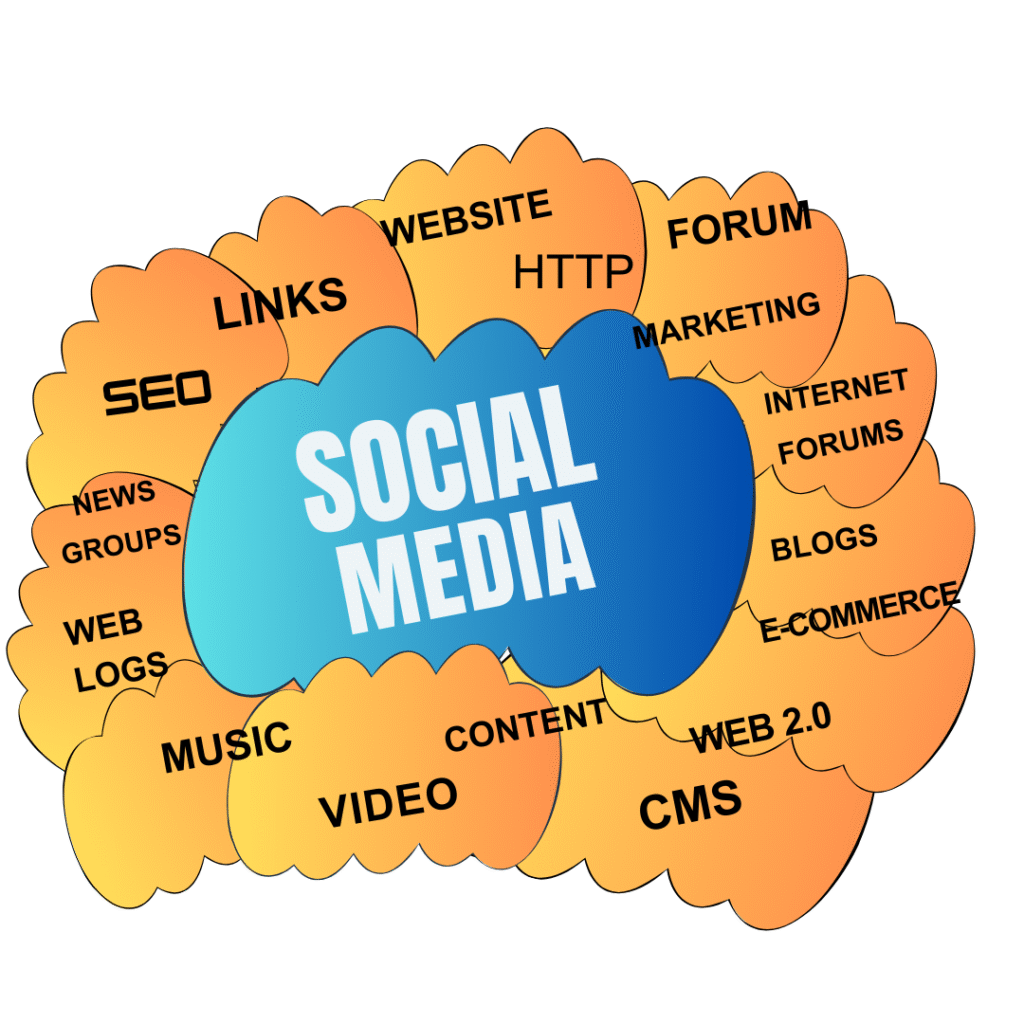
Repurpose Content: Adapt existing marketing materials (blog posts, white papers, presentations) into social media-friendly formats (e.g., turning blog posts into carousels or infographics).
Visual Appeal: Always try to maintain high quality in visulas of photos and videos. Storytelling: Share your brand’s original story, employee testimonials, success stories of clients in a humane way. It helps people to connect emotionally. Remember story is not always equal to fiction!
Timely Posting: Maintain a consistent frequency of posting to be in the game for a longer run.
Timely Response : fast replies make your client feel special. make sure your conversations are complete and relevant.
Join Conversations: Participate in industry-relevant discussions, groups, and chats using relevant hashtags.
Asking the right questions at the right time: Take polls to encourage your audience to participate in conversations. This helps in building community.
Acknowledge Mentions: Thank users who mention your brand and share their positive experiences.
Community building : connect with clients and build useful communities that provide support and keep them updated.
4. Leverage Social Media Advertising:
Targeted Campaigns: Utilize platform advertising features to reach specific professional demographics, industries, and company sizes.
Lead Generation Ads: Use lead generation ad formats to capture contact information directly within the social media platform.
Website Traffic Campaigns: Drive qualified traffic to relevant pages on your website.
Brand awareness Campaigns : Let your brand be seen, heard, talked about! these campaigns help exactly that.
5. Build Relationships with Influencers:
Identify Key Influencers: Research thought leaders and experts in your industry with a relevant audience.
Collaborate Strategically: Partner with influencers for content creation (e.g., webinars, joint posts), co-hosting events, or product reviews.
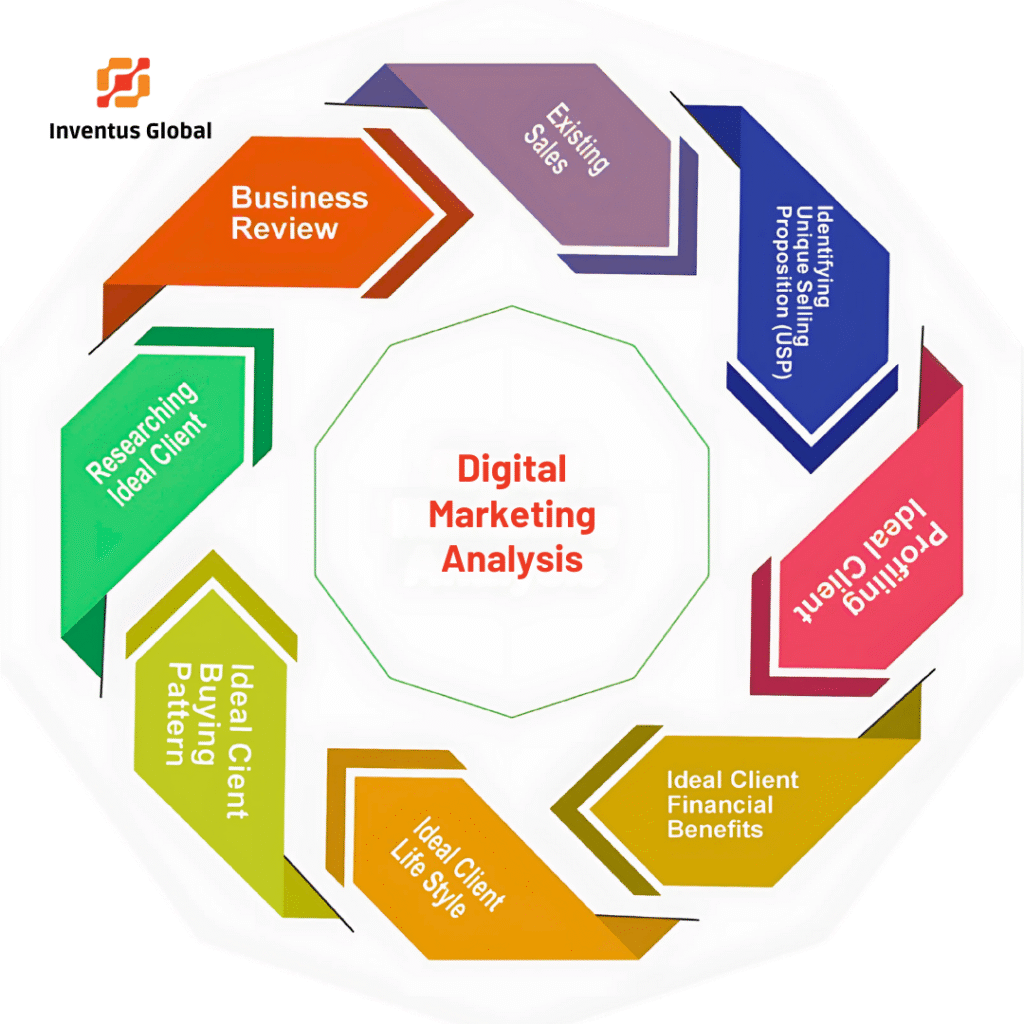
6. Optimize Your Social Media Profiles:
Complete information: Make sure your profiles are complete on social media platforms. Use consistent branding throughout all media platforms.
Compelling Bios: Craft engaging and informative bios that clearly communicate what your company does and its value proposition.
Keywords are the key: .Your clients are using keywords to search things online. Use them in content for better rankings.
Visual Branding: Use your logo and branded imagery consistently for profile pictures and cover photos/banners.
Call to Actions: Include clear calls to action (e.g., “Visit our website,” “Download our guide,” “Connect with us”) where appropriate.
7. Track, Analyze, and Iterate:
Monitor Key Metrics: Track engagement rates (likes, shares, comments), reach, impressions, website clicks, lead generation, and follower growth.
Utilize Analytics Tools: Use the built-in analytics of each platform and consider third-party social media management tools for deeper insights.
Identify What Works: Analyze your data to understand which content formats, topics, and posting times resonate best with your audience.
Refine Your Strategy: Continuously adjust your tactics based on performance data to optimize your results.
Benefits and growth through social media marketing
(image : combination of icons representing following subpoints)
Expand Your Network: Social media breaks down traditional barriers, connecting you with a wide range of professionals and organizations.
Target the Right Prospects: Utilize precise targeting to directly engage the specific decision-makers and companies that matter most.
Attract Quality Leads: Share valuable content and strategically reach out to draw in genuinely interested prospects.
Build trustworthy client relationships: Consistent engagement and valuble insights help to build trustworthy relationships and loyalty.
Strengthen Customer Bonds: Directly communicate with customers for support and feedback, fostering stronger relationships and loyalty.
Boost Brand Visibility: A consistent and valuable presence increases awareness and recognition within your target market.
Better lead handling: You can engage with potential customers, give authentic information and guidance that can help in conversions.
Market comprehensive interactions: Being part of active relevant communities on social media can help to understand the market better.
Catalyse partnerships : You can connect with other businesses to expand your network with potential partners and influential figures in your field.
Drive Website Visits & SEO: Sharing content can increase traffic to your website and offer indirect benefits for your search engine ranking
Navigating the Hurdles: Challenges in B2B Social Media
Reaching the Right Audience: B2B audiences are niche and harder to target effectively amidst platform noise.
Creating Engaging Content: B2B topics can be less exciting, making engaging content for professionals tough.
Demonstrating ROI: Long B2B sales cycles make it hard to directly link social media to sales.
Time and Resource Intensive: Consistent content and engagement demand significant time and effort.
Maintaining Consistency: Regular posting and interaction can be difficult to sustain.
Navigating Platform Differences: Tailoring strategies for each platform requires extra effort.
Building Trust and Credibility: Earning trust requires consistent value and transparent communication.
Aligning Marketing and Sales: Ensuring social media leads are effectively handled by sales is challenging.
Conclusion:
In conclusion, social media marketing is no longer a peripheral activity but a fundamental pillar of B2B growth in today’s interconnected world. By understanding its potential, strategically leveraging the right platforms, creating valuable content, and addressing the inherent challenges, B2B companies can unlock significant opportunities for brand building, lead generation, and ultimately, sustainable success. It’s time to embrace the power of social and make it your competitive advantage
FAQs:
Which social platform is key for B2B?
LinkedIn is the one! but depending on your business it can be facebook or instagram too.
What’s the main goal of B2B social media?
Primarily, it’s about building relationships, establishing thought leadership, and generating qualified leads.
What kind of content works best for B2B?
Valuable, industry-focused content like insights, case studies, and how-to guides that address business challenges.
How do we know if our B2B social media is working?
Track metrics like website traffic from social, lead form submissions, engagement rates, and relevant follower growth.

